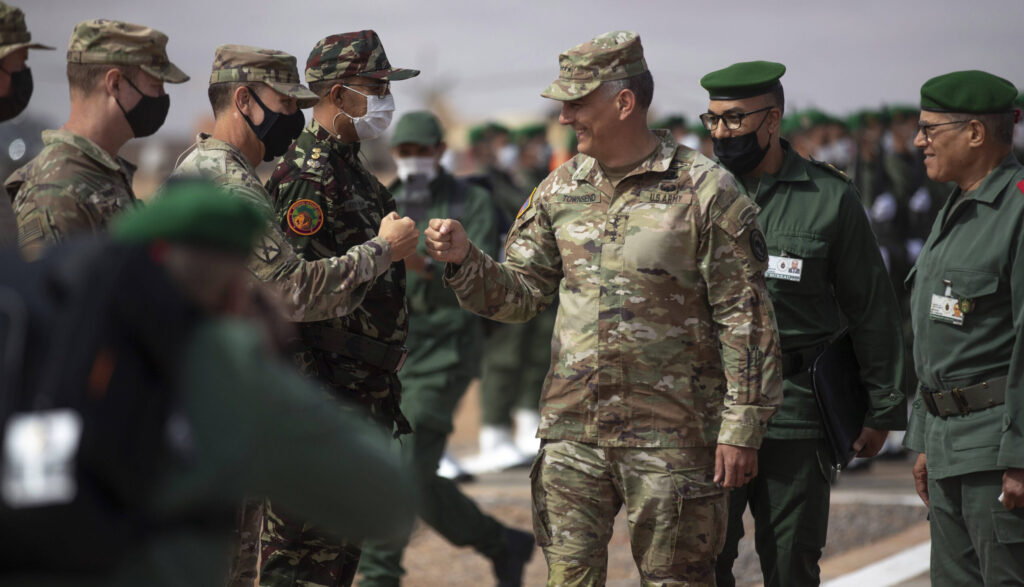By Julian Pecquet
Army General Stephen Townsend, the commander of US Africa Command (AFRICOM), had his recent call with journalists, admitted that he is not satisfied with the US efforts in Africa. Townsen laid out four major US lines of efforts in Africa:
- Maintaining US strategic relationships, access and influence on the continent;
- Countering threats that might emanate from Africa;
- Responding to crises, both natural and man-made; and
- Partnering with African allies partners and following their lead.
US military assistance to the continent includes equipment, advice, training and intelligence-sharing as well as help with airlifts and logistics in some cases.
Townsend went on to say that he was “not satisfied” with counter-terrorism progress since he took over in July 2019. This is his final year in the position.
The key to this is that military forces alone cannot defeat violent extremism.
“Candidly, I’m personally not satisfied with our progress against violent extremists in Africa. And particularly East Africa and West Africa,” he said. “I assess that violent extremism in those two regions continues to expand in both geography and reach and influence.”
He said the US and its partners need to tackle the root causes of violent extremism, and also blamed poor governance and corruption for fuelling recent coups. Last month the US announced its intention to join the Sahel Alliance, a regional partnership focused on institution building.
“The key to this is that military forces alone cannot defeat violent extremism,” he said. “In AFRICOM, we say that we like to use a ‘3 D approach’ – where we lead with diplomacy and development and follow with defensive efforts.”
Russian influence
Asked about any Chinese or Russian hand behind the recent unrest, Townsend said he’s not seen any involvement by Beijing but said the jury’s still out regarding Moscow.
“I have received reports of Russian involvement at least in Sudan,” he said, but Russia is “not the animating force behind most of them.”
Russia’s Wagner Group, however, is proving to be an “unhelpful” influence in Africa, he said. The group is notably believed to operate in Mali despite the Malian junta’s denials.
“My information’s pretty clear that they have brought in Wagner,” Townsend said. “I think they have on the ground several hundred (mercenaries), expanding to some unknown number. I have watched this group of actors in Syria, I’m watched them in Libya, I’ve watched them in Sudan, I’ve watched them in the Central African Republican and I’ve watched them in Mozambique – and they never leave the situation better than they found it.”
Trouble in Mozambique, Gulf of Guinea
Beyond the Sahel, Townsend raised concerns with the violence in northern Mozambique and the Gulf of Guinea.
In Cabo Delgado, he said, an expansion of the Islamic State in Central Africa Province is threatening one of the largest energy deposits in the world.
“It’s a life-changing resource for the people of Mozambique,” Townsend said. “And now all of that is at risk.”
Townsend said the US has sent small deployments to train counter-terrorism forces over the past two years.
Meanwhile the US is helping Gulf of Guinea nations deal with a surge in piracy through help with observation of open waters, training in search-and-seizure operations, and support to maritime domain awareness centers.
“There are international partners talking now on putting together a maritime task force for the Gulf of Guinea that would be similar in nature to the one that’s off the Horn of Africa,” Townsend said. “And the United States is participating in those discussions and supports this idea.”
Credit | The Africa Report

